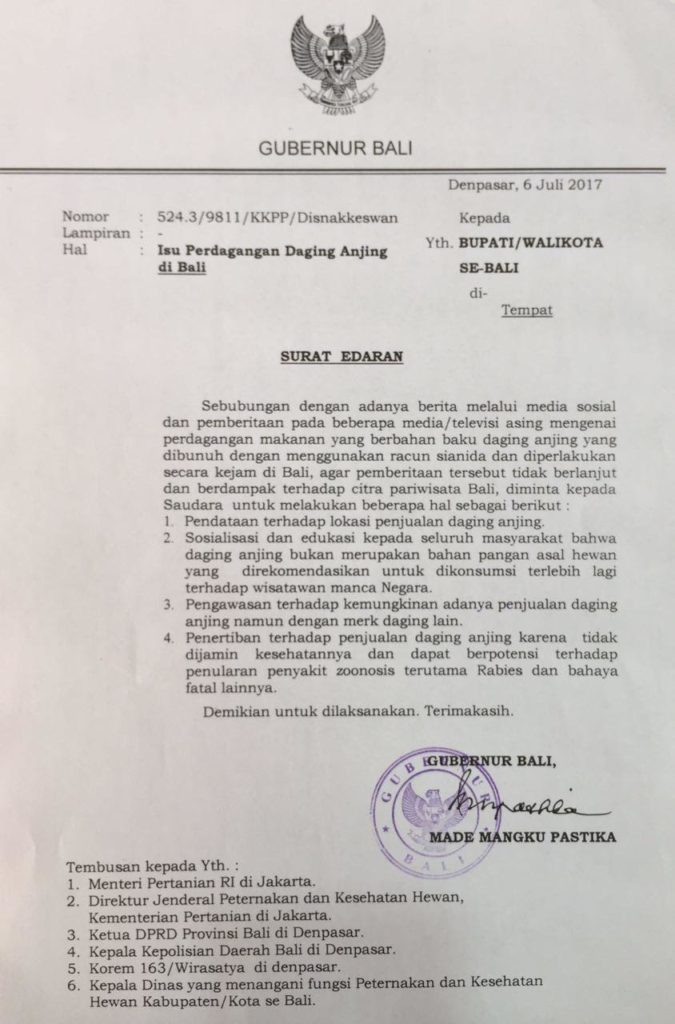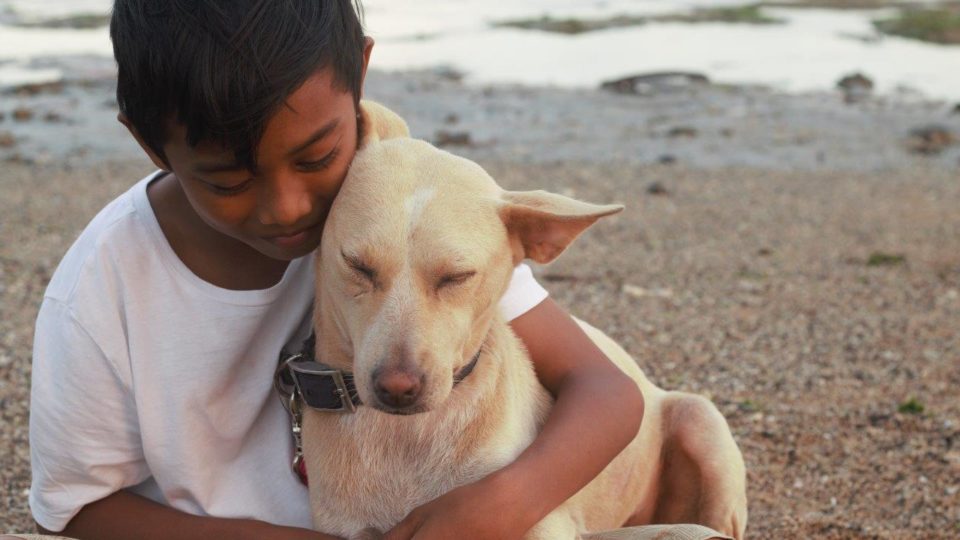Bali governor Made Mangku Pastika has issued a circular, outlawing the dog meat trade on the island, effective immediately.
The move comes after mounting pressure from the international community to ban the trade following an investigation by Animals Australia, revealing the brutal capturing and killing of Bali’s dogs, as well as the health concerns related to eating meat from dogs that may have been poisoned.
The governor’s circular, effectively a decree banning the trade, was sent to officials in all of Bali’s regencies on Tuesday night, Animals Australia told Coconuts Bali in an email on Wednesday.
In addition to putting an end to the dog meat trade, the letter also orders three other things: data collection about dog meat sales; community education and outreach programs; and also, discussion about swapping the sale of dog meat for another meat. The last point, presumably directed at vendors who make their livelihoods of the sale of “RW,” as it is called in Bali.
Coconuts Bali has reached out to Bali Province and is awaiting comment on the circular.
“This is a momentous decision by Governor Pastika that will not only spare many thousands of dogs from terrible suffering but will help to restore the positive relationship the Balinese people have enjoyed with their unique heritage dogs for centuries,” Animals Australia’s Chief Investigator Lyn White said in a release shared with Coconuts Bali.
An undercover reporter infiltrated the underground dog meat trade on the island for four months, demonstrating in an investigation broadcast last month by Australia’s “ABC” how holiday-goers in Bali are unwittingly eating dog meat, as well as the cruelty in the capturing and slaughtering of dogs for meat—not to mention the health risks posed, as some of them are killed using cyanide.
Local officials from Bali’s government said they found no definitive proof that tourists were being served dog meat following the Australian investigation, with one regency’s tourism office even saying the dog meat trade controversy was just “lies” to tarnish Bali’s image, but it seems Bali’s biggest priority is keeping its reputation clean and appeasing potential international tourists.
An online petition launched immediately after the investigation, urging Bali’s governor to totally ban the dog meat trade, has over 172,000 signatures to date from concerned netizens around the globe.
“People from around the world have expressed their distress and concern for Bali’s dogs. We applaud the Governor for listening and taking the decisive action needed to bring about positive change.”
The investigation ultimately lead to a summit held on July 11, sponsored by Animals Australia, facilitated by Bali’s Udayana University, and attended by health professionals, tourism agencies, community members, business leaders, and government officials. The summit ended up being “hailed” as a breakthrough, issuing key recommendations on how Bali’s provincial government approach the dog trade.
“We are really pleased to have been able to build important relationships with senior government officials. Animals Australia’s willingness to be part of the solution for dogs in Bali has helped generate the goodwill needed to act on the trade.
“Dog eating is not a Balinese practice – it was fueled by a small group who came to the island in the 1970’s to work in the hospitality industry. For thousands of years, Bali’s dogs have lived peacefully in villages with locals — it is our hope that they will soon be able to do so again,” said White.
Animals Australia says it is basing staff in Bali to help ease the government’s transition of ending the dog meat trade.
“While fueled by a small section of the community, the dog meat trade has been increasing rapidly in Bali, so the government’s decision comes at a critical time. It’s a more than appropriate response to a trade that involves significant animal cruelty, presents a serious human health risk, and undermines rabies eradication programs,” White said.
See the circular, in its entirety below. We have been informed that the governor’s office has made a typo on the circular’s date, which should read July 26.





